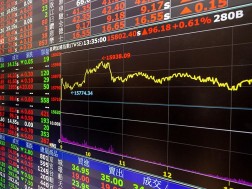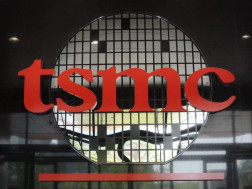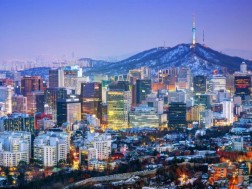The Taiwan or politically correct “Chinese Taipei” or Republic of China elections in January 2024 could be market moving and add to global geopolitical risk while offering tactical asset allocation opportunity.
Taiwan’s presidential election on Saturday January 13th stresses the importance of the Island’s strategic location, world-leading chip industry and geopolitical factors. The China communist Party stated that bringing Taiwan, once referred to as a renegade province under Beijing’s control, is a key and non-negotiable part of president Xi Jing Ping’s national rejuvenation goal.
EWT is the USA New York stock exchange listed iShares MSCI Taiwan ETF, with a YTD performance of – 3.44% underperforming global equities by about -2%. TWD the New Taiwan dollar is the official currency of Taiwan and is trading at around 30 levels against the United States dollar.
Despite a population of just 23.5 million people, Taiwan’s election carries an outsized importance to east Asia and indeed the world economy due to its disputed political status. While de facto independent since the 1940s, the island and its outlying territories are still claimed by the Chinese Communist Party (CCP) – something nearly all Taiwanese reject but fear saying publicly because of the risk of war. (Ukraine like Special Military Operation).
Full-blown economic sanctions levelled against Beijing by Group of 7 countries in the case of a conflict over Taiwan could or would exact an estimated colossal US$3 trillion toll on the global economy.
EWT iShares iShares MSCI Taiwan is currently trading at around U.S$ 44 levels and a has an indicative dividend yield of 4.%. over the last 5 years Taiwan EWT has outperformed global equities URTH by +27%. Year-to-date Taiwan underperformed global equities by -1.94% (source: Bloomberg).
TSM Taiwan semiconductor company is the Crown jewel of the Taiwanese equity market and is trading around 100 dollars levels, current valuation of 1.9.4x and a dividend yield of 2.17%.
Wall street consensus ratings stand at BUY 94.1% Hold 5.95 and SELL at 0%. 12-month TP Target price stands at USD 119.84 implying “potential” returns of 20% from current levels.
there are 5 shares per receipt and the receipts represented 21% of shares outstanding. The underlying stock trades in TWD and trades under the ticker 2330 TT equity.
Similar to how Samsung Electronics is the Kospi index and Korean equity market.
TSM is the largest component stock in the country ETF EWT with 21.86% allocation in the ETF. Long TSM is practically being Long the Taiwan equity market.
It is now consensus that any conflict over Taiwan or an election gone wrong would paralyse the global economy. Legal disclaimer: consensus could still be “wrong”.
To understand modern day Taiwan, it’s important to understand Chinese history and especially the so called “ China’s century of humiliation”.
The China communist party and its party chief Mr. XI stated reunification with Taiwan is a clear and important goal.
"The CCP — who now call Taiwan an “inalienable part” of the country “since ancient times” — long treated it as a foreign territory. In a 1935 resolution, the CCP supported independence for Taiwan. Until 1943, it continued to refer to the Taiwanese people alongside other foreign nations. Not until March 1949 did the party state for the first time its goal of “liberating Taiwan”.
Taiwan is roughly the size of Switzerland and has a population of 24 million, yet produces over 60% of the world’s semiconductors and over 90% of the most advanced ones.
Most Taiwanese appreciate foreign governments and analysts’ calls for restraint to avert open conflict. But many lament that foreign powers only look at today’s Taiwan as a product of the 1949 clash between China’s Communist party and its predecessor regime. This cannot resolve the question over the island’s future and falls far short in understanding why the dispute is so inextricable.
Imperial China occasionally fell into disunity, but the disunity was de- facto never de jure and in the 6th century China reconstituted itself as unified country and it has never looked back.
On October 1st 2023 China celebrated its 74th anniversary of the founding of communist part ruled People’s republic of China, superseding the longevity of the world’s first communist Superpower , the USSR Soviet Union. Ukraine was an integral part of the Soviet Union and as Mr. Putin opined never a real country and this in part was justification for the special military operation.
From 1985 to 1990, the Japan Nikkei index rose 129%, while Taiwan's Taiex index was surging 1,166%. Taiwan's benchmark went from 1,000 to 12,500 between 1987 and 1989, one of the wildest explosions in stock prices ever experienced anywhere at any time.
The island became known as the "Republic of Casino" rather than its formal name: the Republic of China (ROC). During those years many referred to Taiwan as "the place where you can get 80% of what you actually want at a 10% discount."
Since the early 1990s, Taiwan gradually transformed itself from focusing on labour-intensive manufacturing to become one of the world's high-tech hubs. The stock market of Taiwan, on the other hand, has largely lost the interest of foreign investors who shifted to the companies listed in South Korea, Hong Kong and mainland China.
Taiwan is strategically located in East Asia, making it a key player in regional trade. It has strong trade relations with major economies, and its port facilities and shipping industry contribute to its role as a global trade hub.
Taiwan is known for its technological innovation and a robust ecosystem in the technology sector. The country has a well-established infrastructure for research and development, making it a hub for innovation and cutting-edge technology.
Just because it is consensus does not necessarily make it wrong, is an important and timeless adage from the financial markets. Taiwan investor consensus seems to be that A win for the incumbent Democratic Progressive Party at the Jan. 13 election will likely keep things status-quo, while a narrower lead — or surprise win by more China-friendly opposition groups — may boost hopes for better collaboration with Beijing and be a boon for Taiwanese stocks.
The market seems to have already priced in a base case scenario of a DPP win, but “a closer gap between DPP and Kuomintang may be seen as a slight positive,” as it reduces the risk of conflict with Mr. Xi’s mainland China
In the words of a Chinese proverb: fortune favours the brave and the prepared mind.
Rainer Michael Preiss, Partner & Portfolio Strategist at Das Family Office in Singapore
















